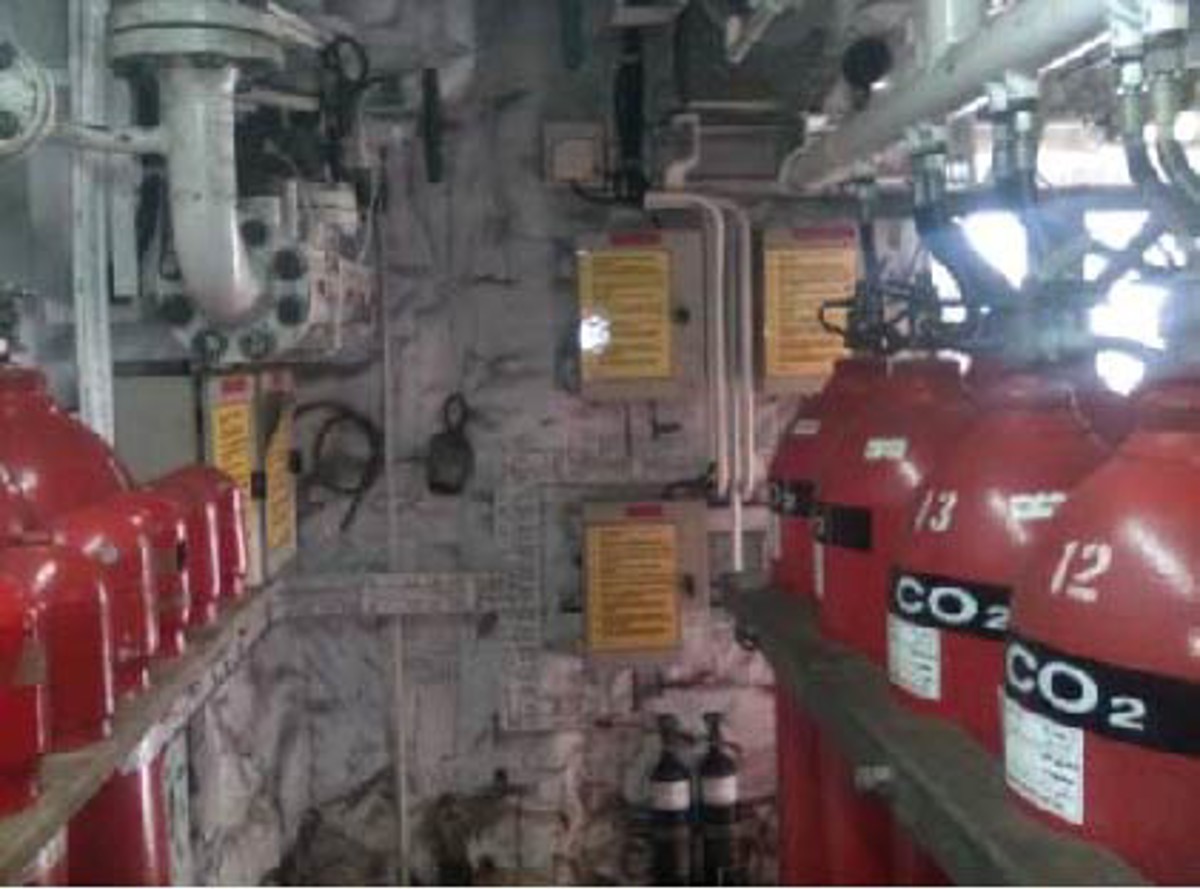Awareness: CO₂ flooding system activation points
- Safety Flash
- Published on 20 December 2016
- Generated on 4 July 2025
- IMCA SF 35/16
- 1 minute read
Jump to:
A member has highlighted a potential gap in safety awareness which may be of interest to members.
One of their vessels has a CO2 flooding system activation point within the main CO2 bottle room – however, there are no warnings or procedural guidance on the use of Breathing Apparatus (BA) within the main CO2 bottle room when operating the system.

Our member drew the following lessons:
- When activating flooding systems there is a chance that CO2 may leak into the space itself, either directly from the cylinders and/or associated piping. As such, the space may quickly fill with CO2 presenting a hazardous atmosphere to persons inside.
- Therefore, after seeking guidance from the maritime fire-fighting school, our member recommended the use of BA whenever.
- entering the CO2 cylinder space after activating the system from a remote point.
- when activation of the CO2 system is required from within the CO2 cylinder space itself, or
- whenever undertaking drills within the CO2 cylinder space.
- Steps were taken to review relevant vessel specific procedures and, where required, update them to include guidance on the use of BA equipment in CO2 cylinder rooms/spaces.
IMCA Safety Flashes summarise key safety matters and incidents, allowing lessons to be more easily learnt for the benefit of the entire offshore industry.
The effectiveness of the IMCA Safety Flash system depends on the industry sharing information and so avoiding repeat incidents. Incidents are classified according to IOGP's Life Saving Rules.
All information is anonymised or sanitised, as appropriate, and warnings for graphic content included where possible.
IMCA makes every effort to ensure both the accuracy and reliability of the information shared, but is not be liable for any guidance and/or recommendation and/or statement herein contained.
The information contained in this document does not fulfil or replace any individual's or Member's legal, regulatory or other duties or obligations in respect of their operations. Individuals and Members remain solely responsible for the safe, lawful and proper conduct of their operations.
Share your safety incidents with IMCA online. Sign-up to receive Safety Flashes straight to your email.